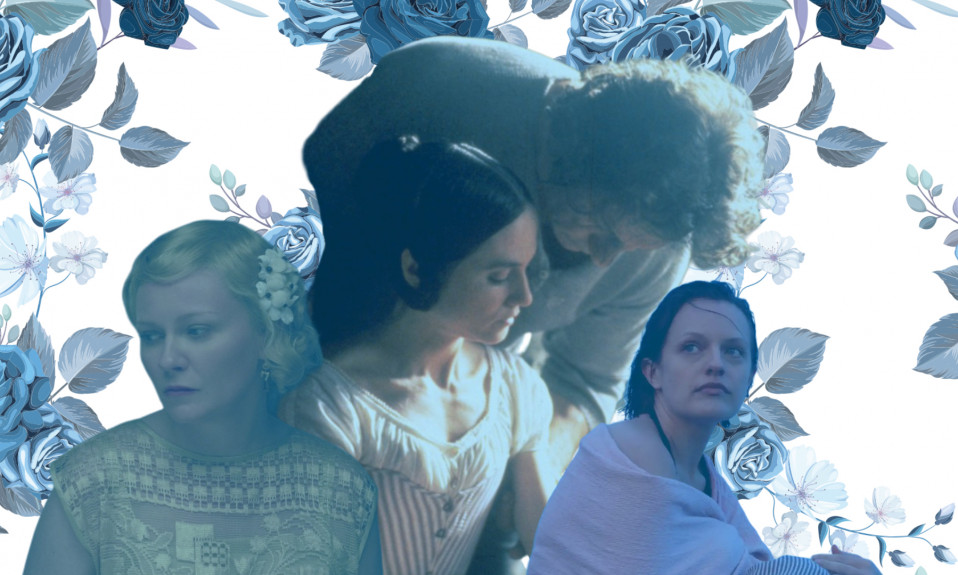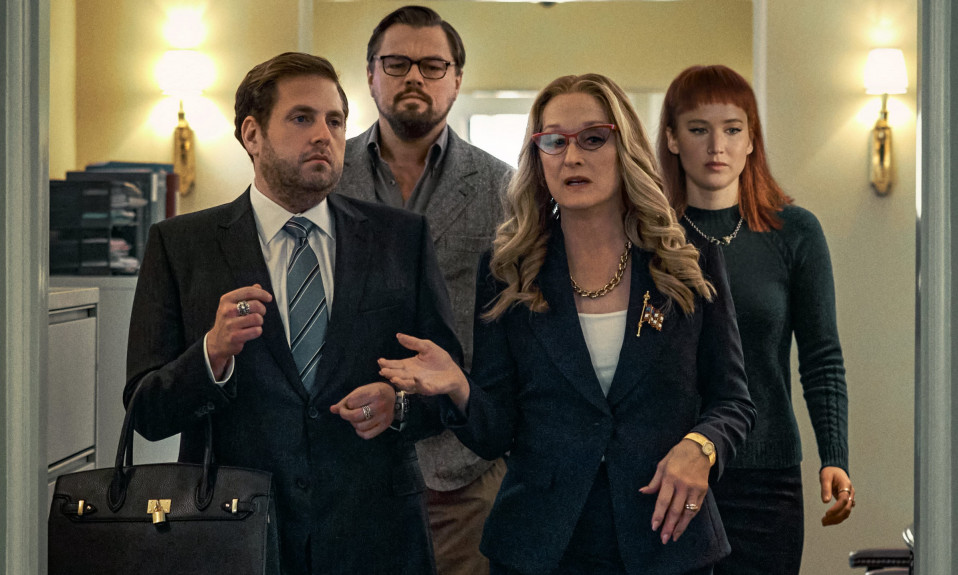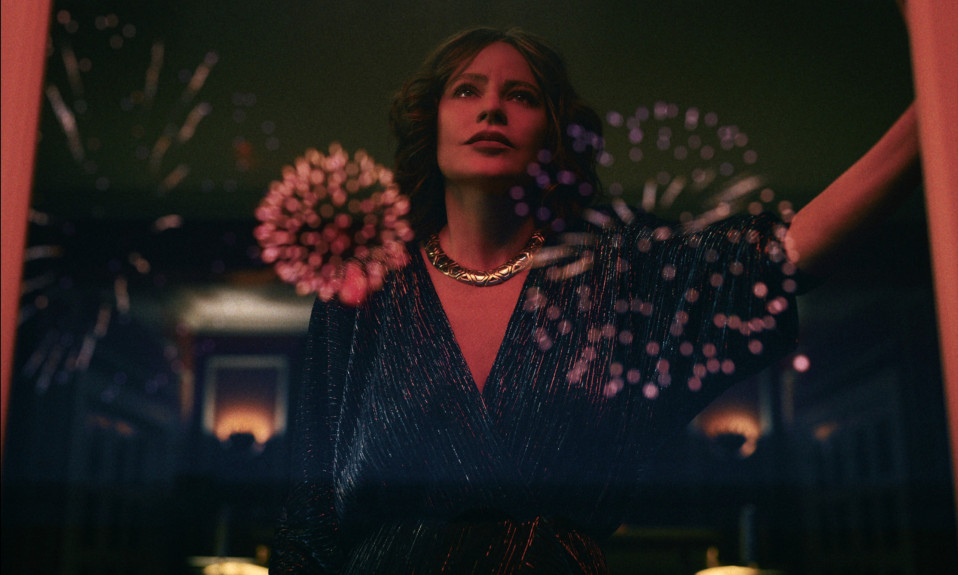A film like Jane Campion’s The Piano feels like it has always existed somewhere in my consciousness. Just like how I knew that deep water was dangerous and that the dark could contain horrors, I was always sort of aware that this film existed. Perhaps I saw images of Holly Hunter as Ada quite early on, her china-white face framed by her bonnet, her eyes speaking multitudes. Before I saw the film, I couldn’t shake the length of that long beach she stood on in New Zealand, wearing a hoop skirt, left isolated on the shore. When I finally watched it for the first time as a teenager, I was totally mesmerised by it. Its darkness, the way it brooded with so much unsaid, the way it was both erotic and dangerous.
In 1993, the year I was born, The Piano won the Palme d’Or at Cannes, making Campion the first woman to win this award A few months later, it took home three Oscars for Campion’s screenplay, and for the performances of its two actresses: Hunter and Anna Paquin (the latter then only 11-years-old.) I’ve sometimes wondered, albeit rather casually if my connection to The Piano stems from being “born” around the same time as its release; if I didn’t think something about its gothic sexuality illuminated what the zeitgeist was like as I entered the world. Either way, The Piano acted as my entry point to Campion’s work. Hers were films, often period pieces, which focused on women. First, there was Ada, a woman who had lost the ability to talk and was married off to a man she had never met. Then there was Fanny’s bubbly and open nature in 2009’s Bright Star and, not long after, Isabelle Archer in Campion’s less-successful adaption of a Henry James novel, manipulated by those around her. There was, too, Campion’s slightly more mainstream effort, In the Cut; a dark erotic thriller that failed to capture much praise but which was, to me, truly exceptional. On television, there was Robin Griffin, the complex and troubled detective who dedicated her life to fighting crimes against women, yet was haunted by her own sexual past. These films and television shows gave me a language for intimacy and, maybe most importantly, desire.
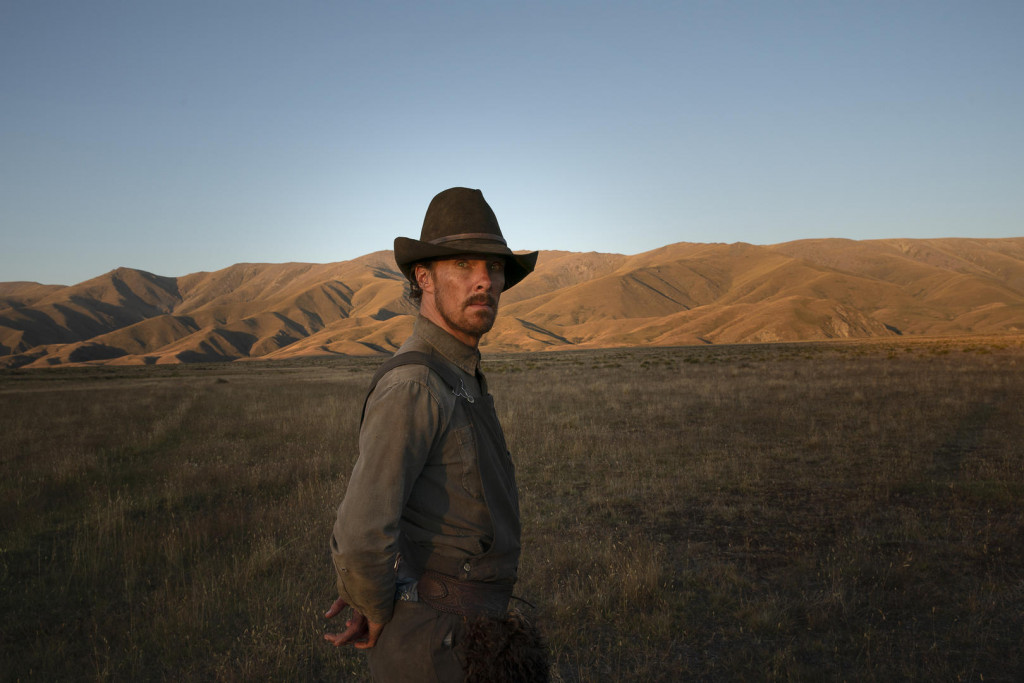
Last Monday, I saw Campion’s latest feature film, The Power of the Dog, her first in twelve years. The film, which screened as part of the London Film Festival and will be released in select theatres on November 17th before hitting Netflix on December 1st, turns its focus onto men. That is not to say that her male characters have been underdeveloped before. Quite the opposite. Sam Neil and Harvey Keitel in The Piano exude a multitude of complexities; In The Cut’s Mark Ruffalo manages to remain both strangely dangerous and wholly sexy as the detective assigned to the murder case, and Ben Whishaw as John Keats has an air of sensitivity about him in Bright Star. Yet with The Power of the Dog, Campion hones in on masculinity in a focused way, through the image of Phil Burbank (Benedict Cumberbatch), a misogynistic ranch owner and total control freak who exerts his power through bullying and intimidation at any given opportunity. He is obsessed with his mentor, Bronco Henry, who died some years ago but taught him everything he needed to know about riding and life.
In one scene, which is perhaps my favourite in all of Campion’s oeuvre, Phil steals himself away to an isolated glade in the woods near his ranch in Montana and strips down to just his chaps. He takes out a silk handkerchief which he has been storing in his underwear next to his crotch and begins to run the fabric across his naked torso, laying it delicately over his face, taking in its scent. It may take an audience a second to understand who the handkerchief belongs to. Until now, Phil has exerted a toxically masculine energy. He has been emotionally cold to his brother’s new wife (played extraordinarily by Kirsten Dunst), and he has bullied her son both for his lisp and his sensitive, effeminate demeanour. At first, we might wonder if the handkerchief belongs to that emotionally abused wife, his power over her transforming into pleasure. But as he relinquishes himself totally to his fantasy, we see a set of initials embroidered into the handkerchief’s corner: “BH.” Bronco Henry.
It is no wonder, then, that after Peter, the boy with the lisp, catches Phil bathing naked in the creek, Phil strikes up a kind of mentorship with him and, in many pseudosexual moments, the pair share a cigarette, or thread rope, or straddle the saddle that once belonged to Bronco Henry. Phil attempts to ease his own insecurities by forming a bond with Peter in the image of what he had with Bronco; only now he is the one sitting in that mentor role, and he can wield his power differently.
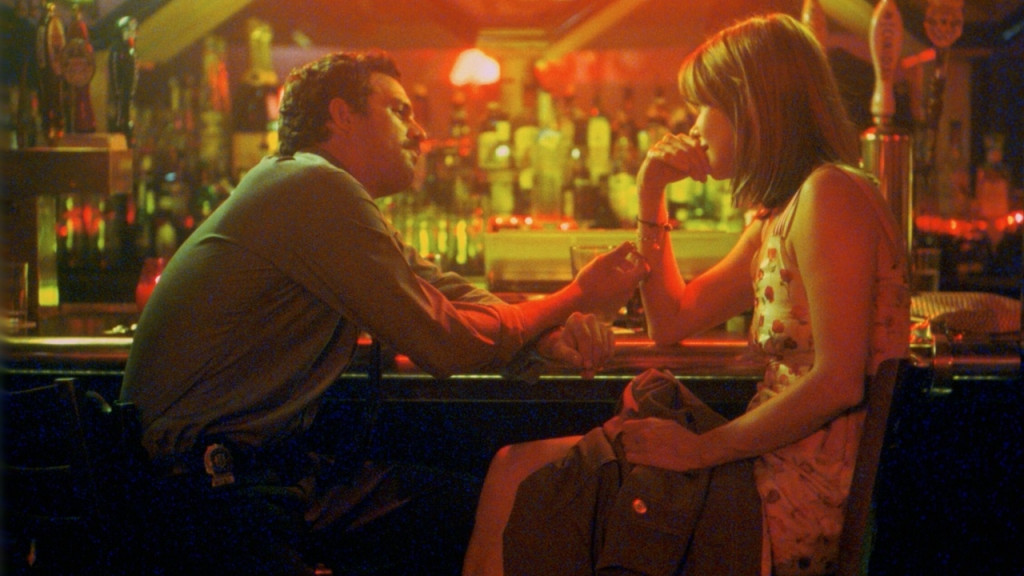
Power and sex are perhaps two of the most interlinked forces. Some might go so far as to describe sex as a transition of power, back and forth. Whether that is understood through more obvious ideas of power in sex—i.e. sadomasochism, or a Sub/Dom style partnership—to something more nuanced, with things like confidence, arousal, experience, and passion shifting the dynamics of power during fucking. Not to mention, perhaps more darkly, we are often asked to consider the power imbalance when it comes to sex, between a young actress and a big-time film executive, the teacher and the student etc. Others claim that sexual assault and rape are, in totality, all about power too. In all, questions often ask: who has the power after sex? Who has it before? What constitutes power in a sexual context, and then, by extension, what constitutes feeling powerless? As Maggie Nelson, in her book On Freedom, has it:
Analyzing the power dynamics of any particular scenario can be crucial to our understanding what happened and why. It does not follow, however, that if elements of power exist—as they always do—our agency is extinguished, or that an abuse of power has occurred. The exercise of agency is always a negotiation of available possibilities and pressures; there is no world in which “agency” or “free will” exists apart from webs of relationality, which includes relations of power. Nor will it do to map our own constellations of power onto the psychology of others, for we do not all attribute power to the same people or forces, or feel affected by that power in the same ways. Not all women take kindly to being told that certain people inevitably have power over them; charges of false consciousness or impaired decision-making always risk patronizing the very people for whom they’re intended to care.
– Maggie Nelson, On Freedom
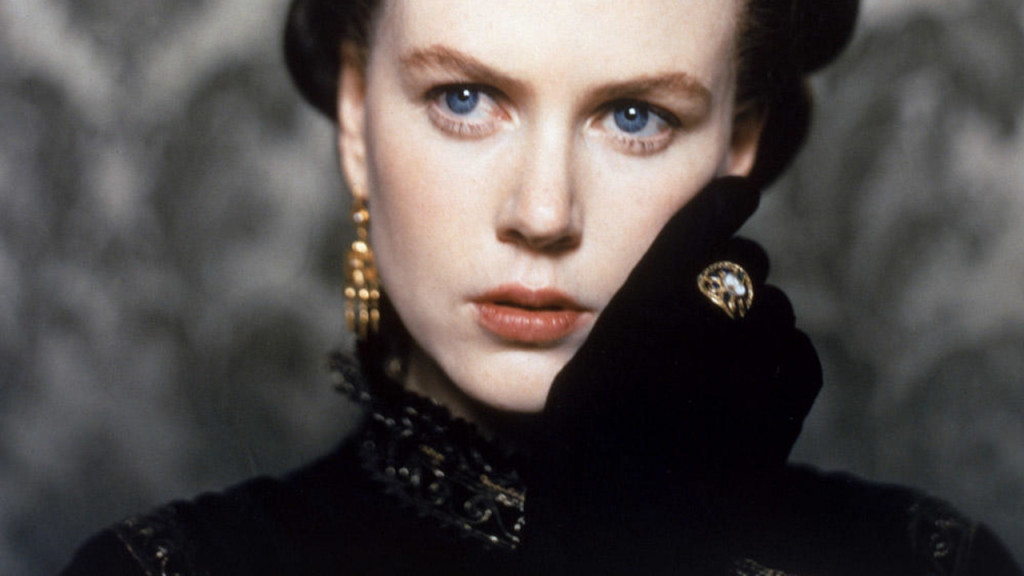
Campion’s filmography arguably understands this better than any other’s. Her films take root, unflinchingly, in those power dynamics. She seems to understand, too, the power of sexuality beyond the obvious. When Isabelle Archer is touched on the cheek by a male suitor, she traces where his fingers have been after he is gone. As Detective Malloy offers to romance Frannie, he fiddles with the charms on her silver bracelet – yet when he offers to fuck her and “lick pussy” that physical bond breaks, just for a second, as Frannie recoils from what she thinks she might want.
In this – a touch, a look, a gesture – Campion knows desire lurks. These quiet intimacies boom with sexuality and tension. It is in these complex spaces between having power and not that she finds drama. In this way, it seems obvious why she is often drawn to period dramas like The Power of the Dog as more than simply a transgressive approach to feminism, or a reclamation of history. In an interview published alongside the script for The Piano, Campion describes this predilection: “I have enjoyed writing characters who don’t have a twentieth-century sensibility about sex.” Without all the signifiers we see now, all the magazines and films that shape our desire, Campion felt she could get at something deeper, something innate in how we feel and what we long for. It is this, perhaps, that led critics to name The Piano the greatest film ever made by a woman (even if such a qualifier feels reductive).
Also Read: How Film Changed Me: On Anti-Escapism


